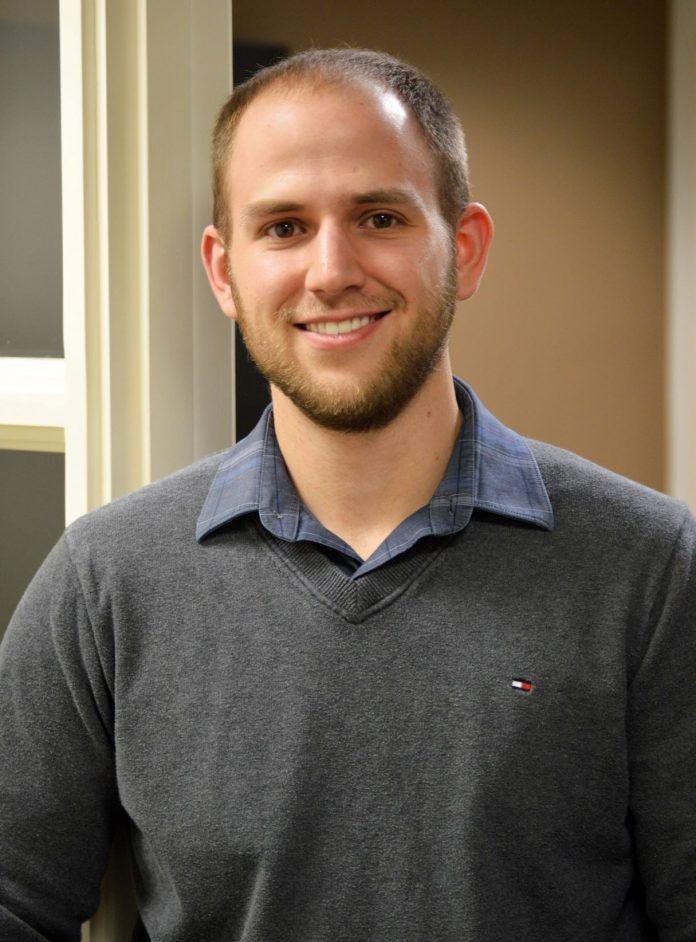Dan Swedits, a certified public accountant and audit supervisor at Blum, Shapiro & Co., is one of a group of firm employees who have been volunteering for the $eeds for $uccess Financial Literacy Program aimed at students who attend Cranston High School East and Cranston High School West.
Blumshapiro employees helped write the curriculum and they teach the course in the classroom. The program, currently focused on students with developmental disabilities, will enter its third year in the fall. The purpose: Start teens off on the right financial track.
PBN: Can you describe your experience teaching the $eeds for $uccess program in the classroom? Do the students have an understanding of the importance of financial literacy from the start or is it something that develops over the course of the program?
SWEDITS: Our goal as instructors is to help everyone in the classroom increase their knowledge as the semester goes along. Most of the students we’ve worked with come in on day one understanding that the concept of financial literacy is important, but they don’t know where to start when it comes to thinking about how it will apply to their own lives.
Throughout my brief time in the classroom, I’ve found that the majority of students develop a deeper understanding of subject matter when we, as instructors, relate the course topics to their personal lives. The students we’re working with need to be able to imagine a real-world scenario in which they would use these skills in order to fully grasp them. For example, the idea of “saving money” doesn’t resonate with some students until we ask them to think about what they would like to buy or receive as a gift.
PBN: What has surprised you the most during your involvement with the program?
SWEDITS: I didn’t have any teaching experience before getting involved with this program. I went to school to work in finance, and I spend my workday as an audit supervisor, so jumping into the classroom to talk to high school students a few days a week was certainly a new challenge for me.
What’s surprised me the most is the impressive amount of entrepreneurial spirit shown by the students we’ve had the chance to meet. This past year, I had a student tell me that he’s saving up to buy new equipment to launch a DJ career and another say he’s saving money to buy a plow for his truck to make some cash during the snowy season. These students hustle, and that’s more than I can say about my own high school self!
PBN: Are there any particular aspects of financial literacy that you feel are more important for young students to learn early? Are there any aspects that young people typically struggle with more than others?
SWEDITS: Just like any sport, skill or academic subject, the most important piece of financial literacy is the fundamentals. Students need to learn how to set and maintain a weekly budget before they can start thinking about a five-year financial plan. They need to learn how to differentiate between needs and wants before they start worrying about retirement accounts and tax planning. Our goal with the $eeds for $uccess program is to start building that strong foundation of basic, fundamental knowledge so that the bigger things come a little bit easier.
PBN: Do you have any recommendation for parents to assist with the financial literacy of their children outside the classroom? How early should they start?
SWEDITS: I think it’s just remembering that it’s never too early to start thinking about finances. We’ve found that the students who have had some sort of experience managing money – even if it’s as saving a few dollars here and there to save up for a new video game – typically have an easier time understanding some of the bigger-picture financial literacy concepts.
PBN: What’s next for the $eeds for $uccess program? Does the company have plans to expand it in the future?
SWEDITS: We’re incredibly proud that the first two years of the $eeds for $uccess program have been such a success, and we’re always looking for ways to improve and grow the program. We’re currently exploring the possibility of bringing in new partners, perhaps some exciting guest speakers, to join us in the classroom and give the students a fresh perspective on the lessons we’re teaching.
William Hamilton is PBN staff writer and special projects editor. You can follow him on Twitter @waham or email him at hamilton@pbn.com.













